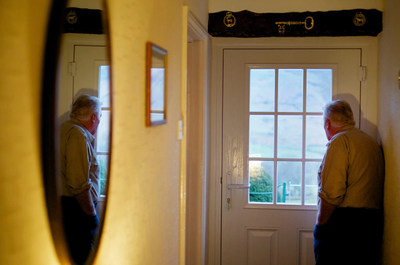 2019-03-14 15:00:45+00:00
2019-03-14 15:00:45+00:00
Understanding Loneliness In Older Adults — And Tailoring A Solution
For years, Dr. Linda Fried offered older patients who complained of being lonely what seemed to be sensible guidance. “Go out and find something that matters to you,” she would say.
But her well-meant advice didn’t work most of the time. What patients really wanted were close relationships with people they care about, satisfying social roles and a sense that their lives have value. And this wasn’t easy to find.
We need “new societal institutions that bring meaning and purpose” to older adults’ lives, Fried recently told a committee of the National Academies of Sciences investigating loneliness and social isolation among older adults. (Fried is a geriatrician and dean of the Mailman School of Public Health at Columbia University.)
The committee’s deliberations come amid growing interest in the topic. Four surveys (by Cigna, AARP, the Kaiser Family Foundation and the University of Michigan) have examined the extent of loneliness and social isolation in older adults in the past year. And health insurers, health care systems, senior housing operators and social service agencies are launching or expanding initiatives. (Kaiser Health News is an editorially independent program of the Kaiser Family Foundation.)
Notably, Anthem Inc. is planning a national rollout to Medicare Advantage plans of a program addressing loneliness developed by its subsidiary CareMore Health, according to Robin Caruso, CareMore’s chief togetherness officer. UnitedHealthcare is making health navigators available to Medicare Advantage members at risk for social isolation. And Kaiser Permanente is starting a pilot program that will refer lonely or isolated older adults in its Northwest region to community services, with plans to eventually bring it to other regions, according to Lucy Savitz, vice president of health research at Kaiser Permanente Northwest. (KHN is not affiliated with Kaiser Permanente.)
The effectiveness of these programs and others remains to be seen. Few have been rigorously evaluated, and many assume increased social interaction will go a long way toward alleviating older adults’ distress at not having meaningful relationships. But that isn’t necessarily the case.
“Assuaging loneliness is not just about having random human contact; it’s about the quality of that contact and who you’re having contact with,” said Dr. Vyjeyanthi Periyakoil, an associate professor of medicine at Stanford University School of Medicine.
A one-size-fits-all approach won’t work for older adults...
